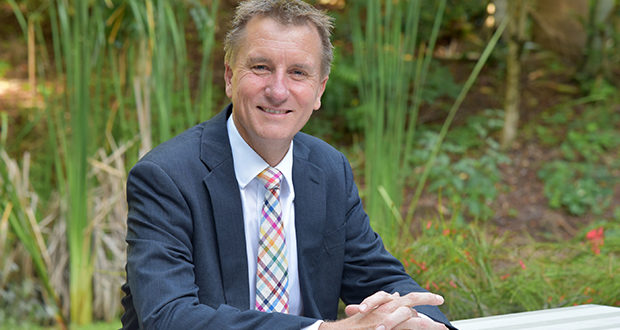Our 40 or so Australian universities are not unlike those in other parts of the world in having distinct histories and legacies that shaped their evolution but are now parts of systems that have encouraged them to be more alike.
Most emerged at a time when there was limited diversity in their pool of students. From the days when almost all university students were school leavers from the wealthy classes heading for professional careers, access to the transformational opportunities presented by higher education has broadened considerably.
Higher education has become a driver of social justice, democratisation and growth in local economic productivity.
Contemporary higher education students are diverse, pursuing varied sources of study, seeking flexibility and personalised experiences, and studying at multiple stages of life and careers.
They have become drivers of diverse economic development and growth across nations, and among regions. They are a key component of the war for talent, particularly during a skills crisis, in the competition between industries, cities and employers.
The current context in Australia, as we embark on developing a new Universities Accord, is coloured by a national skills shortage, exacerbated in the regions.
Our sector is facing funding challenges from an unprecedented budget deficit and transformed expectations and experiences of learners and learning. This is all causing a hard shaking of the kaleidoscope of the competitive landscape.
It is a time for every government, institution, teacher, and student to reconsider our education futures. The implications are outlined in some detail in a forthcoming book on The New Learning Economy.
Global universities are reviewing their education futures in the complex competitive environment of increased interest from EdTech and BigTech companies.
Likewise, in Australia, the relatively stable competition among our public universities has been stirred up by the catalyst of new threats, ambitions and opportunities.
The University of Melbourne is currently revisiting its size and shape for the future at the same time that it needs to reconsider its nature.
Other leading Go8 universities such as the Universities of Sydney and Queensland are increasing their interest in under-represented students including from rural and regional areas.
Central Queensland University starts from a distinctly different starting point.
It is unique in Queensland, and rare in Australia, in serving the full range of post-secondary education needs as a dual sector university offering both higher education and TAFE programs of study.
It does so in some of the most dispersed and regionalised parts of the nation where domestic student markets are thin but where the thirst for skilled, career-ready graduates is most keenly felt.
In its recent history, CQUniversity has been further shaped by a series of COVID-triggered impacts, including a direct and sudden hit to international student enrolments, differential exposure to lockdowns and social restrictions which changed the face of campus life (particularly at its metropolitan sites), and encroachment on its traditional strength of online learning by many other universities.
Starting from here, when you are in the middle of a skills crisis, and a mainstay of multiple regional communities is a very different position to be in as a university leader.
The response by CQUniversity, as a university committed to its region and communities, and as an early pioneer in online education, has been to double down on its core strengths: enhancing technology as a means to close the education attainment gap in regional Australia (even when the “rising tide has lifted all boats” in regard to online learning), putting a positive student experience at the heart of its operations (despite the changing face of student experience post-pandemic), and staying true to its mission of being a catalyst for positive social impact.
This focus on social impact is playing out in its partnerships with local industries and employers, with concerted efforts to further blur the lines between education/training and workforce participation.
This means going beyond the traditional notions of work integrated learning and moving towards hybrid ’earn and learn’ models, paid placements, and fast-tracked qualifications that more rapidly satisfy workforce skills gaps.
And it is leading to new programs and new cohorts of graduates serving acute community and industry needs in areas such as advanced apprenticeships, regional medical pathways, and renewable energy training.
What we learn from considering the unique form of a place like CQUniversity in responding to the current predicament facing all our universities, and in doing it alongside the different responses of established metropolitan research powerhouses such as Melbourne, Sydney and UQ, is that not all universities are the same.
They have distinctive histories, missions and responsibilities and their own opportunities and purpose. This creates a platform for them to explore their own different education futures and to do so for the diverse body of future university students.
As the process for the development of a new Universities Accord plays out over the coming months, under the umbrella of creating a better future, there will be many calls for that to serve individual and partial interests.
It seems even more important that the education futures of Australia serve the needs of all who seek study and to learn.
Our diverse and varied institutions have distinct missions in seeking to provide for that need. It is the subject we discussed through the perspective of CQUniversity Australia’s only regionally dispersed dual sector institution on a recent episode of the HEDx podcast that you can access here.
Emeritus Professor Martin Betts is co-founder of HEDx and Professor Nick Klomp is the Vice-Chancellor of Central Queensland University.
Do you have an idea for a story?Email [email protected]
 Campus Review The latest in higher education news
Campus Review The latest in higher education news

